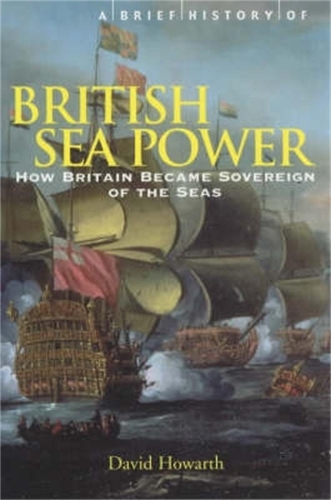
A Brief History of British Sea Power: How Britain Became Sovereign of the Seas
(Paperback)
Publishing Details
A Brief History of British Sea Power: How Britain Became Sovereign of the Seas
By (Author) David Howarth
Little, Brown Book Group
Robinson Publishing
20th March 2009
United Kingdom
Classifications
Tertiary Education
Non Fiction
Ships and boats: general interest
387.5094109
Physical Properties
Paperback
480
Width 129mm, Height 197mm, Spine 32mm
332g
Description
The British did not take to water like ducks. In this work, David Howarth reveals that for hundreds of years this island nation did little but cling to coastal waters, and had no notion of sailing, or of anything but clinker built ships. The Romans and Vikings were superior seamen, and the English upper classes saw seafearing as mercantile, and beneath their notice. It was not until Elizabeth I's reign that Britain's success at sea truly began, with the utter defeat of the Armada thanks to superior gunnery and seamanship. Other nations placed noblemen and soldiers in command, but Elizabeth entrusted her ships to practical seamen such as Hawkins and Drake - and they repaid her trust. Howarth reconstructs the expansion of trade routes and the great 18th-century days of the line of battle ships, when sea warfare was at its peak. With Napoleon's fall, the British were free to expand and cement their empire, and the prestige of the Royal Navy rose so high that sea warfare almost ceased for a century as British ships patrolled the oceans. In the 20th century the British navy was twice as big as any other and more than half the merchant shipping in the world was built and owned in Britain. This account is full of anecdote, erudition and humour.
